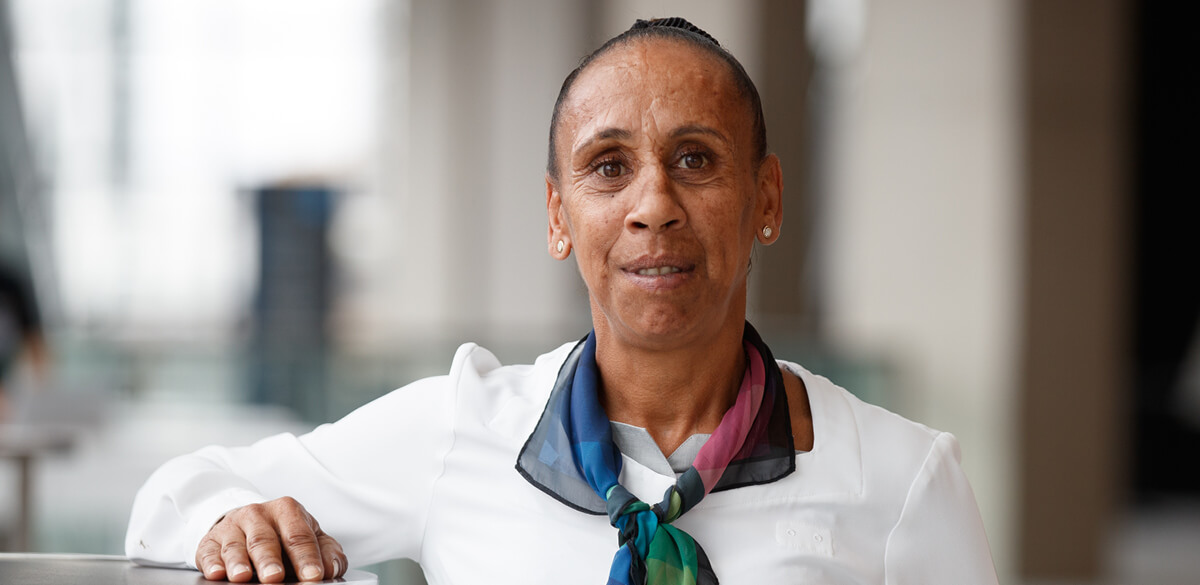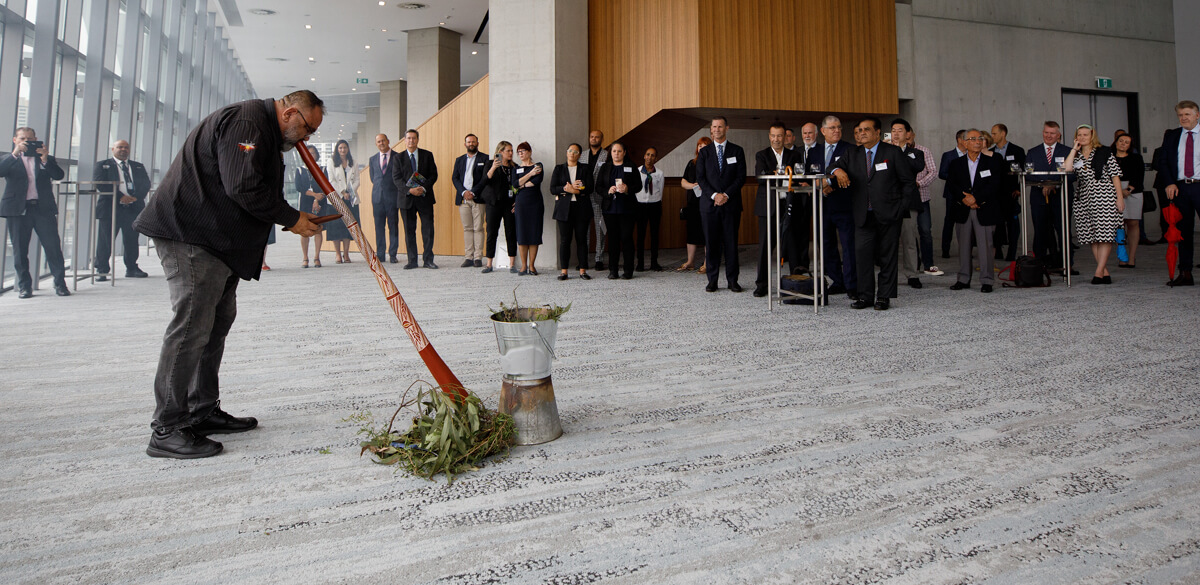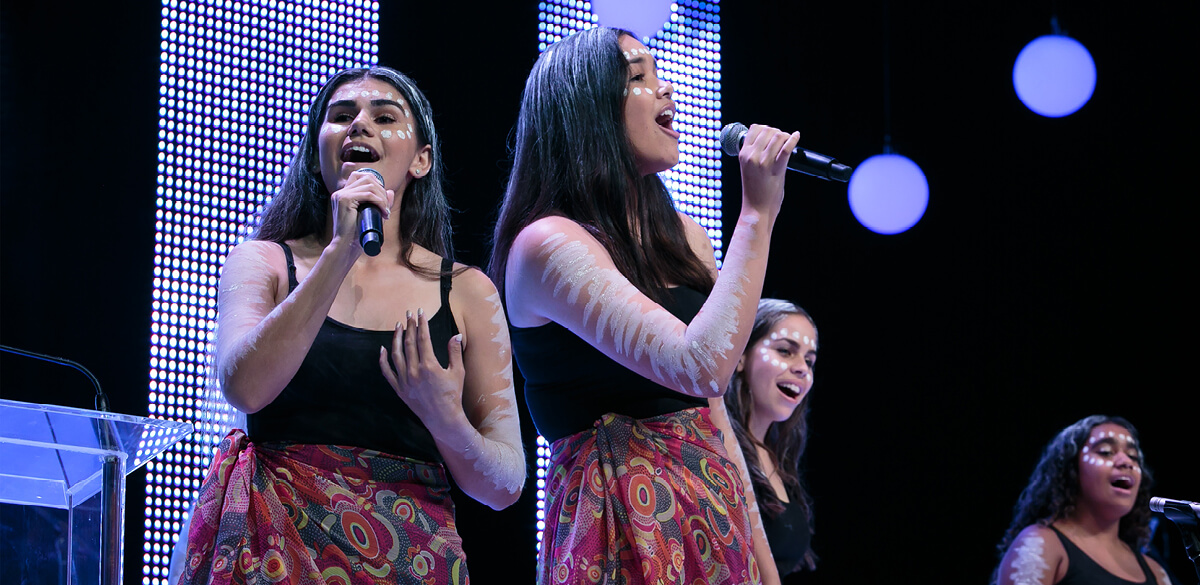
STRENGTH IN DIVERSITY
Culturally rich teams and event programs deliver outcomes
Written by Elizabeth Fortescue
Photography by Daniel Boud
The uniquely important role of Indigenous Australia in economic prosperity was highlighted when ICC Sydney hosted Business Sydney’s inaugural First Nations Forum in March 2022.
ICC Sydney augmented the event by launching a First Nations initiative of its own: its second Reconciliation Action Plan. The document, an even more ambitious plan than the one ICC Sydney launched in 2018, seeks to create warm, mutually beneficial partnerships between ICC Sydney, its clients, First Nations people and enterprises across the next two years..
The new Reconciliation Action Plan’s many specific “deliverables” include the aim for at least two new First Nations-owned businesses to become preferred suppliers to ICC Sydney every year.
For Councillor Yvonne Weldon, who last year became the first Aboriginal woman elected to the City of Sydney, there is already “so much reflection of the First Nations people at ICC Sydney.”
Karen Mundine, CEO of Reconciliation Australia, says ICC Sydney has a “firm and demonstrated commitment to supporting First Nations people.”
There is probably no bigger fan of ICC Sydney’s Reconciliation Action Plan than Margaret Bolt, a First Nations member of ICC Sydney’s cleaning and presentation services. After taking time out of the workforce to raise her family, she then endured almost a decade of disappointments in her quest to find work.

“I went for many jobs and I just kept getting knocked back,” Bolt says. “No matter where I put in an application, I was either too old or I didn’t have the experience. It was like nobody would give me a go. It got me down. I was on the edge of giving up.”
Everything changed when Bolt enrolled in the inaugural ICC Sydney and TAFE NSW First Nations Pre-employment Program run by Eora College in Chippendale. The short course gave her the necessary skills to meet the first employment entry point.
“Without this program, I wouldn’t be here,” Bolt says.
She has now been a member of the ICC Sydney team for five years.
In 2018, ICC Sydney became the first Australian convention centre to commit to a Reconciliation Action Plan. Now, with its second iteration of the plan, ICC Sydney has extended its vision ever further.
“This next phase of work expands our initiatives to build greater engagement with, and acknowledgement of, Australia’s First Nations people –with our customers, event attendees and our own team members,” says ICC Sydney Corporate Affairs, Social Responsibility and Communications Director, Samantha Glass.
“We understand that the reconciliation journey does not follow a straight line, nor can it be a ‘to-do’ list where we simply tick off tasks. Rather, our vision for reconciliation is one where collaboration and partnership foster greater inclusion, opportunities and recognition for Australia’s First Nations people.

So how does the Reconciliation Action Plan work in practice? When conference organisers come to ICC Sydney to arrange their event, they are offered the chance to take part in the First Nations stream of ICC Sydney’s Legacy Program. This stream opens the way for conference delegates to engage with local First Nations people, cultures and businesses.
“The Legacy Program enriches delegates’ experience and makes a difference long after the conference is over,” Glass says.
A Welcome to Country or a Smoking Ceremony can be built in a conference program through the partnership between ICC Sydney and the Metropolitan Local Aboriginal Land Council.
Conference delegates can experience authentic Indigenous performing or visual arts, or tap into products and experiences from a wide range of entrepreneurial Indigenous businesses, through ICC Sydney’s partnerships with First Nations organisations such as the KARI Foundation and Supply Nation.

Young Yorta Yorta woman Talyssa Baker performs with the KARI Singers at venues including ICC Sydney. Before a show, she steadies her nerves by thinking about family members who have passed, particularly her uncle.
“He’d say to me: ‘Sing your heart out. Do it for yourself, but also do it for your people. We’re so proud of you’,” Baker says.
Performing in language is an emotional experience.
“It’s the best feeling — being confident and proud of who you are,” Baker says
KARI Foundation’s performing arts arm represents a modern approach to Aboriginal Australia, says foundation chief operating officer, Cain Slater.
“It gives Aboriginal young people an opportunity to showcase their culture and who they are on a bigger stage,” Slater says.

“We empower them to sing in Aboriginal dialogue. It shows that language is something that should be cherished.”
On a broader level, says Slater, the KARI Singers help to break down the barriers to Aboriginal Australia.
“Part of what we try to say is that Aboriginal culture belongs to everyone. It’s 60,000 plus years of who Australia is. We want people to feel proud of that, whether or not they are
of Aboriginal heritage,” he says.
In 2019, KARI honoured ICC Sydney by naming it as Partner of the Year.
“We look for champions of change and ICC Sydney is definitely a champion of change,” Slater says.
“It’s about respect, understanding our past and moving forward, but also, as we move forward, making sure we take everyone together.”
